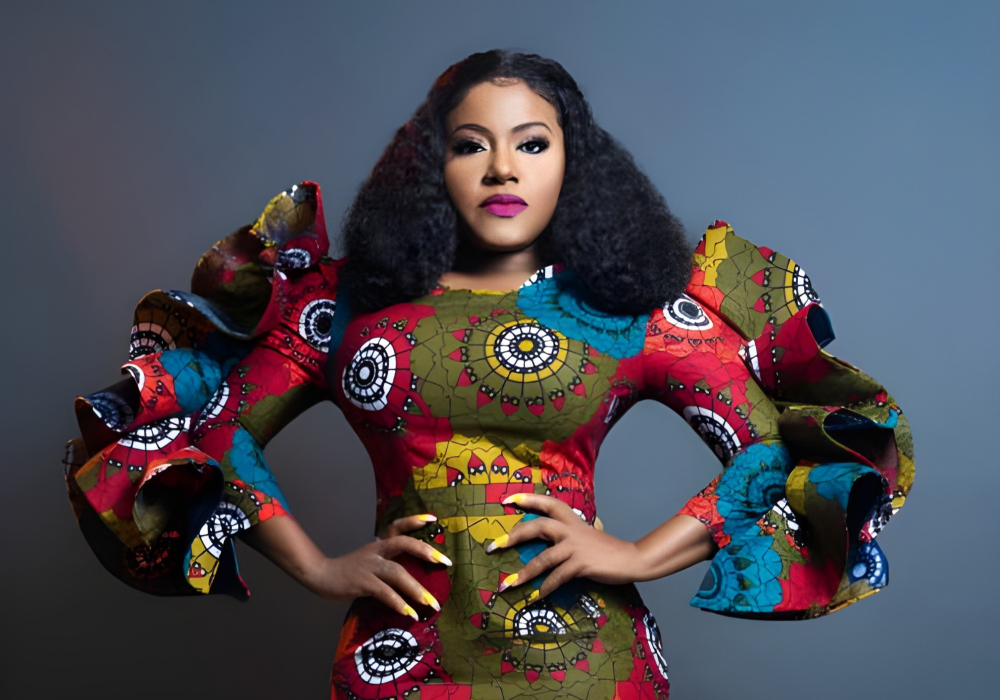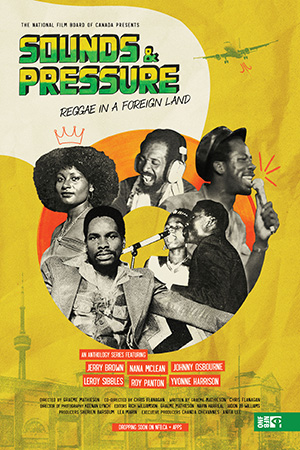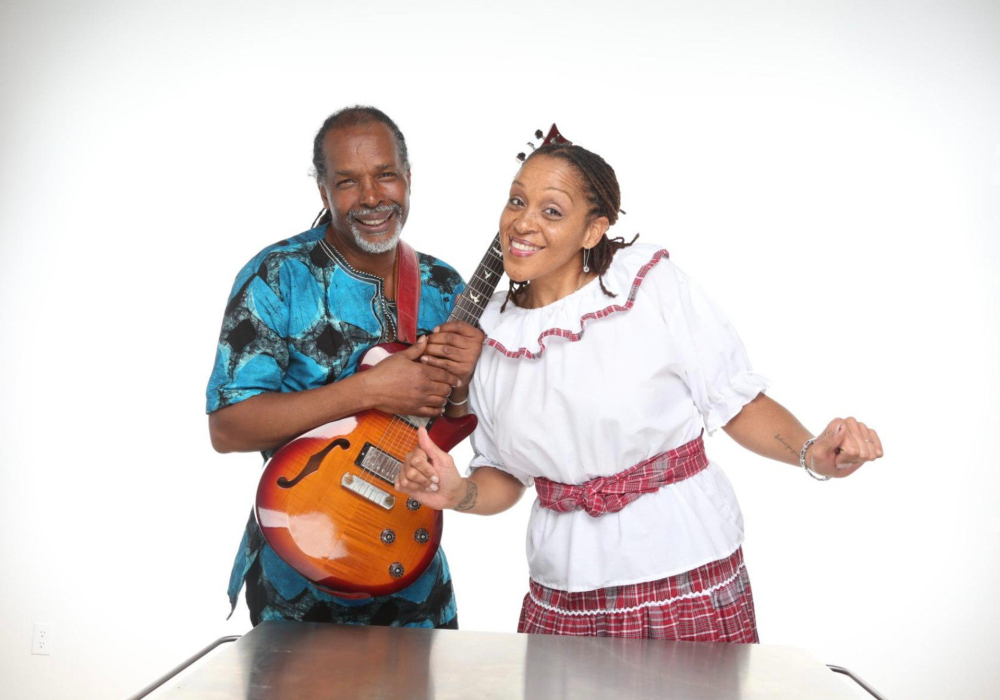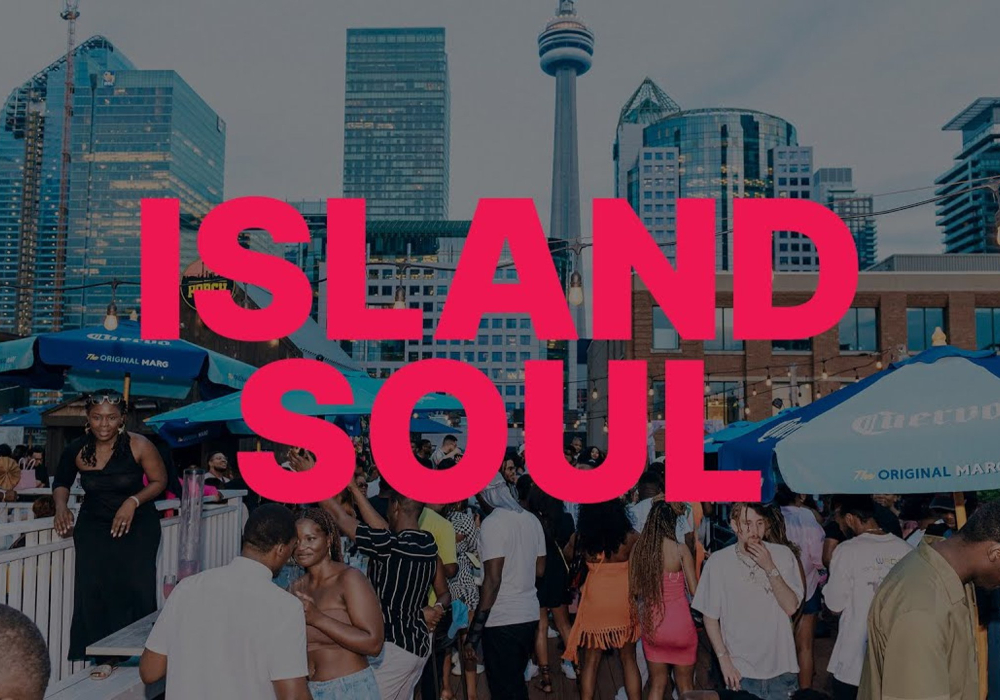Harbourfront Centre has reached an extraordinary milestone this year—its 50th anniversary. The institution stands not only as a beacon of cultural engagement but also as a symbol of community and diverse artistic expression. Arinola Olowoporoku, a cultural producer deeply involved with Harbourfront Centre's cultural programming, shared insights into this significant anniversary during our Afropolitan Dialogues podcast conversation.
Reflecting on the 50th anniversary, Arinola highlighted the vibrant energy permeating the Harbourfront Centre. The organization has been preoccupied with celebrating its rich legacy, featuring various festive activities and recalling iconic projects and partnerships developed over the years. This retrospective look affirms the institution’s sustained commitment to fostering artistic and cultural growth.
 Arinola Olowoporoku
Arinola Olowoporoku
As part of the Harbourfront Centre’s myriad celebrations, the "Island Soul" festival holds particular significance. Running from August 1-5, 2024, this year’s edition is special as it begins on Emancipation Day. The festival merges the joyous celebration of Caribbean culture with the commemoration of the Black diaspora, offering a unique lens through which to view cultural legacies.
Here's our interview >>
AfroToronto:
Thanks for taking the time to do this. I understand that this is Harbourfront Center's 50th anniversary. How has it been around the office around the 50th anniversary? I spent many years going to Harbourfront to take part in events and shows. So tell me about Harbourfront and the 50th anniversary.
Arinola Olowoporoku:
Yeah, it's our 50th anniversary this year. A lot of our festivals are programmed around celebration, having a good time, and remembering legacy projects that we did. Harbourfront Center and legacy partners that we've had over the years.
AfroToronto:
Oh, this is good. So, tell me a bit about the Island Soul Festival. I've been to that festival for many years, and every year, it's a great destination for our culture, music, and everything. So, tell me a little about this year and what the lineup is like.
Arinola Olowoporoku:
Okay. So this year, it's our 26th anniversary. The festival starts on August 1st and runs until August 5th. August 1st also happens to be Emancipation Day. So that gives us the avenues to, of course, merge both and celebrate everything to do with the Caribbean culture and also the Black diaspora at large. This year, the programming and curatorial theme is legacies of the islands. The vision of the festival is to showcase, celebrate, and highlight the legacies and the generations of Caribbean culture and arts, the movements of the culture and arts from the Caribbean to Canada, as well as Toronto, and how they permeate through the culture.
AfroToronto:
This is good. Since you have a mixture of concerts and stand-up music, what goes around programming these acts, and what are the selection criteria?
Arinola Olowoporoku:
So, again, because the theme is legacies and roots of the islands, we try to program veteran artists, artists who have been at Harbourfront Centre for many years and who have operated in Toronto and in Canada at large. For many years, there have been a lot of general award-winning artists, but we also have some international acts. And then we juxtapose this with emerging artists who are new on the scene, just trying to find their lane, their sound, their footing, and just seeing how contemporaries and the emerging artists play with the sounds and how they're influenced by their predecessors.
So kicking off the festival is Trixx, a comedian. He's going to come from the US, but he's of Caribbean descent as well. The show is 'Trixx And Friends,' and will include other comedians Correy Bell and Mike Paramore. Trixx is someone who's not new to Canada or platforms like Just For Laughs and has been at Harbourfront Center multiple times before.
We also have other artists who are veterans of the space, like Grammy-nominated and Juno award-winning artists like Johnny Osborne, Jay Douglas, Etana, Destra, and Nailah Blackman and DJ Power. DJ Power was there last year as well. Again, these award-winning artists were super popular nationwide and even globally. But then, on the emerging fronts, we have artists like EverythingOShauN. EverythingOShauN is a band. He's a Nigerian Jamaican artist.
 Two-time Grammy nominee and one of Jamaica’s best, Etana.
Two-time Grammy nominee and one of Jamaica’s best, Etana.
Again, it's thrilling to see how those cultural backgrounds influence the sounds and how they synchronize together. We have Jah’Mila Sings, who will be coming from Nova Scotia. Jah’Mila Sings is a seven-piece band. Jah’Mila herself is the band leader. She's the lead vocalist of the band, but she also used to be the background vocalist for major bands such as The Wailers and Black Uhuru. Black Uhuru is one of the most popular bands in the Caribbean and also one of the first ones to win a Grammy in the reggae category.
We have a day party for anybody to attend. The Paradise Soul Day Party is a 19-plus event, ticketed, and has a lineup of DJs. The day party is organized in collaboration with Lagos in Toronto (LIT). Some of the DJs are DJ 42, DJ Lambo, DJ Cashala, and DJ Damiger. So, this is a mix of Caribbean and Afrobeat sounds. We also have MC QuaceyDan, who plays in the Caribbean space.
We also have Tiny's Session, a travelling showcase and platform to discover emerging artists. It's typically an intimate session that takes place in a cafe, a living room, or a condo. So again, we have both extremes.
We have a loud, groovy, spectacular, big band, you know, The Recipee Band is gonna be there. We're going to have SoundClash. We had that last year, and SoundClash is basically like DJ Starting From Scratch playing on the same set as The Recipee Band. Again, just playing with how those sounds mixed together and making more throwback music, like present-day music and contemporary sounds, and playing to the audience and the different demographics visiting the Harborfront Center. So, the entire lineup is intimate and groovy but also colourful and spicy.
We have large outdoor spectacles, but again, like I said, we have smaller, intimate events. Jay Douglas will also be on-site, backed by Hardcore Band. Again, these are household names in Toronto and Canada.
AfroToronto:
Okay. This is great. Also, you have a film that I see that you're gonna have a preview of Sound & Pressure. It fits perfectly with Island Soul's theme this year. It's a documentary about the golden age of reggae and its ties to Toronto. So tell me a bit about that.
Arinola Olowoporoku:
Yes, we're presenting this film in collaboration with the National Film Board (NFB), and it's also like a sneak preview. So the entire film series, which is a documentary, has five episodes, but we're only showing two episodes, and our two episodes are on Johnny Osborne and Nana McLean. After this film, there will be a talk-back, a final discussion where people will get to ask the artist questions and interact with them, get to meet them, get to understand, you know, their motivations.

They'll also get a sense of the struggles and successes over the years of working in this space. It is not necessarily just the difficulty but the journey of permeating the sounds of reggae, dancehall, and all those genres in Toronto and Canada. So that's one of our exciting shows. The film is not public right now. So, again, that's why it's an exclusive premiere, and it's also like a snake preview.
AfroToronto:
Okay. This is really good. There is definitely a strong population of Caribbean people in Toronto, which brings a lot of different flavours and cultures, music and sound, and all that. Over the years, Harbourfront has showcased these cultural expressions a lot, whether it's through cultural programming like Kuumba and Island Soul.
So, tell me about your journey as part of the Harbourfront Center and your commitment to showcasing the Black experience, whether throughout the year or at these annual events. Also, mixing Afrobeats and Caribbean culture. Because there's not only one Black identity, there's Black identities, you know, from the diaspora, the Caribbean, and the continent. So, speak a bit about your job as far as programming this and how Harbourfront is supporting all of that.
Arinola Olowoporoku:
Yes. Earlier this year, I also happened to be the producer for Kuumba. It was a month-long celebration of Black History and Black Futures. It was beautiful and fantastic. Harbourfront does a good job of creating space for artists and creatives but also for different communities. As a programmer and producer, I'm always looking for unique ways to achieve this, depending on the programmatic and curatorial themes.
I'm always looking for unique ways to bring together artists who might not necessarily come together or normally play, but I also like to introduce new artists to new audiences, which is also why I like to introduce new audiences to new artists. In that way, we have EverythingOShauN, a Nigerian Jamaican artist, but we also have Lagos in Toronto, which is traditionally an Afrobeats platform. But, you know, essentially, bringing them in front of a Caribbean audience, but also, bringing DJ 42 and MC QuaceyDan, who play in the Caribbean space, to an Afrobeats audience and seeing how those arts and those creative outputs can inform each other and inspire each other.
AfroToronto:
That sounds great. How have you, from a more personal aspect, gotten involved in curating culture and festivals? Has that always been a passion of yours?
Arinola Olowoporoku:
Well, honestly, I think that I accidentally stumbled into programming, but it fits the bill, so to speak, because I myself am a multi-disciplinary creative. I've been creating, you know since I was young. But after I graduated with my master's, not being a traditional painter or a traditional artist in that sense, I knew that I wanted to work in service to the arts and artists. Of course, art administration made the most sense. In the beginning, I was a writer as well. I did grant writing and started creating programs in Nigeria, other places, and Europe, but that quickly developed into a cultural producer scene. Initially, I was mostly focused on visual arts and festivals, such as visual arts-based festivals and fairs and things like that. But they would all, at some point, because there always has to be a crossover, have some music here and some performance here and some dance there.
But in the last few years, I've now focused more on cultural production and multidisciplinary arts. I've been heavily focused on visual arts.
AfroToronto:
I can imagine that organizing festivals and curating cultural experiences at the Harbourfront Centre is a lot of work, especially with Island Soul, which lasts four. days. There's music, film, food, comedy, and all that goes behind the preparation. We all enjoy going there, but how far in advance do you prepare it, and what goes into the preparation?
Arinola Olowoporoku:
Honestly, we program as early as we can. I will say loosely a year in advance because, of course, we have to check our bills. We have to do a lot of budgeting and planning. We are also a big team at the Harbourfront Centre, so we produce the festival in collaboration with each other. We have multiple departments that have their hands on deck for this. I work in the cultural engagement department, but we also have marketing, technical production, digital media, and visitor experience. We have our volunteer department as well. So, again, all these departments work on all the different festivals at Harbourfront Centre.
So, we try to give ourselves that advance as much as we can because sometimes it's not possible again because, you know, things like budgets have to be approved or finalized and things of that nature.
AfroToronto:
You mentioned it a little bit earlier, but I find the concept of Tiny’s Session interesting. Up-and-coming musicians, comedians, and artists perform in intimate settings, whether it's a living room or a coffee shop. So, how do you pick those places, and how do people find out? I guess you can go on the website, but how did you pick those places?
Arinola Olowoporoku:
So, being here and having worked at HarborFront Center for a year and a half now, I have to do a lot of research. So, I insert myself in as many cultural and artistic spaces as possible. And I like, you know, one of my core areas of expertise over the years is access to discovery. Emerging artists are very close to my heart. And because, you know, they're somewhat green, there's a lot for them to learn, and there's a lot of audiences for them to be exposed to. And so I, again, through going out and going to all these cultural events, I find them somehow and attempt to think.
Sometimes, the opportunity does not necessarily present itself, but wherever it's possible, I make sure that this happens. Tiny’s Session is a particularly interesting one because I think there are so many places it can go. I've not seen any platform like that up close, at least in Canada or in Toronto. So once I attended a few of them last year, I was like, this is very interesting.
AfroToronto:
People at Island Soul can experience performances, concerts, music, and film, as we discussed, but there's also an interactive element. I see that young people or general people can go to arts and crafts workshops. I know that Vibe Arts has a couple of them, like mask making, so tell me about VIBE Arts and those workshops where people can interact with the festival.
Arinola Olowoporoku:
Yes, Harbourfront Centre is a recreational, cultural, and educational center and institution. For every festival we do, we always make sure that there's an educational aspect for people who might not necessarily be experts in the field. We also make sure that we program for every demographic for each festival. We make sure our festivals are as accessible as possible, ranging from ticketing to free to pay what you can. Again, like I said, accessibility for everybody, but also, in the same vein, making sure that we cut across every demographic. So, we have djembe drumming by VIBE Arts for the workshops. We have a carnival headpiece creation workshop, and we also have mask-making.
 A Tale Of Time: Caribbean Storytelling Workshop
A Tale Of Time: Caribbean Storytelling Workshop
So parents can come for concerts while their kids can be in the kids' zone to play and have a good time. They'll put together some pieces and learn from the best artist facilitators. These programs, like I said, have an educational aspect.
We have Caribbean storytelling, for instance, with Maurice Gordon, Marsha Laylor, Bryan Huntly, and Anthony Guerra. So they're going to be covering different types of storytelling, like call-and-response storytelling.
We also have Lores by Yolanda. Yolanda T. Marshall is a fantastic children's book author. We had her last year as well. She was a vendor but also a storyteller. This year, she's going to do a storytelling session.
She's going to do another storytelling session with Suzette Vidale, which will be storytelling plus steel pans. So, again, we cover as many different terrains of the Caribbean as possible but also introduce educational aspects for people who might not know too much about that particular culture, community, or subject matter.
AfroToronto:
Okay, this is great. Was there anything else that you wanted to add?
Arinola Olowoporoku:
I also wanted to mention that we have Empress Mash Up. Empress Mashup is an all-female reggae jam session that I introduced last year because women in reggae need to be highlighted more. We're featuring Rayzalution, Canada’s all-female reggae band. We had them last year, and they were fantastic, beautiful, engaging, and electric. I paired them with some solo artists. Last year, we had four solo artists. This year, we have two solo artists. The two solo artists for this year are Tasha T and Jah’Mila. Jah’Mila is from Nova Scotia, so she's coming as well with her full seven-piece band, and it's Jah'Mila Sings.
Harborfront Centre's Island Soul Festival not only celebrates Afro-Caribbean culture but also fosters a sense of unity and shared heritage. Arinola's dedicated curation ensures that the festival remains a cornerstone event, showcasing both established and emerging talent.
For more details, festival-goers are encouraged to visit the Harbourfront Centre website and the Island Soul 2024 page.







Comments powered by CComment